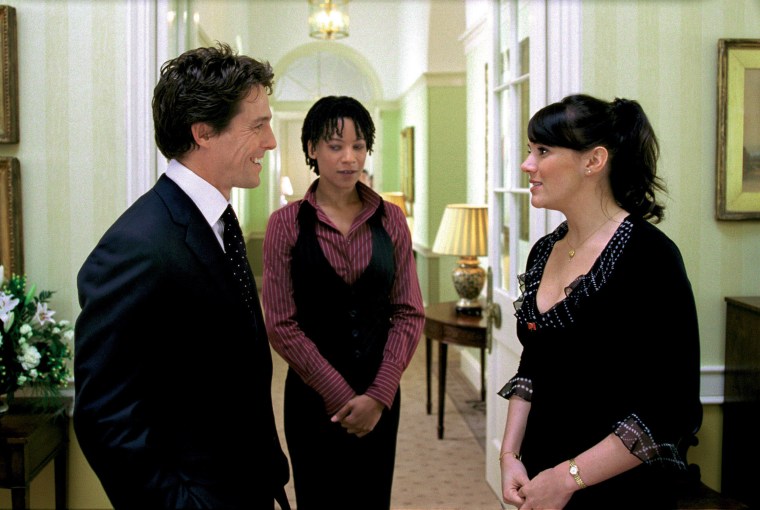“Bridget Jones’s Diary,” “Love Actually,” and “Notting Hill” may be mainstays of the romantic comedy genre, but their screenwriter, Richard Curtis, says they haven’t entirely withstood the test of time.
During an appearance at the Times and Sunday Times Cheltenham Literature Festival — which ran from Oct. 5 through Oct. 15 — Curtis sat down with activist and writer Scarlett Curtis for an interview.
Scarlett Curtis is Richard Curtis’ daughter and, in her interview, prompted her father to answer the increased criticism his films have recently received. Namely, she asked Richard Curtis to reflect on how breakout films like “Love Actually, “Bridget Jones,” and “Notting Hill” treated women and people of color at the time.

“I think because I came from a very un-diverse school and a bunch of university friends,” Curtis replied in an audio recording of the event shared by the festival with TODAY.com. “(With) ‘Notting Hill,’ I think that I hung on to the diversity issue, to the feeling that I wouldn’t know how to write those parts. And I think I was just sort of stupid and wrong about that.”
The 1999 romantic comedy features an all-white main cast and, as Scarlett noted, is set in London’s Notting Hill district. The location was the sight of various civil rights-motivated riots that took place in 1958. It was also a neighborhood that drew in Caribbean immigrants before it experienced gentrification, according to History Workshop Journal.
“I feel as though me, my casting director, my producers just didn’t think about it. Just didn’t look outwards enough,” Richard Curtis said of his negligence of alluding to such history or culture in the film.
The writer went on to lament his portrayal of women and his film characters’ negative commentary on their bodies. At the time of their theatrical debuts, the female protagonists in his films “Love Actually” and “Bridget Jones’s Diary” were subject to Richard Curtis’ commentary on body size and workplace harassment from their bosses.
“I remember how shocked I was like five years ago when Scarlett said to me, ‘You can never use the word fat again,’” Richard Curtis said, recalling a previous conversation with his daughter.
In “Love Actually,” the character Natalie (played by Martine McCutcheon) is criticized in the film by characters for her “massive” “tree trunk thighs.” She’s also depicted as a young, junior member of the Prime Minister’s household staff and is ultimately kissed non-consensually by the President of the United States and later (seemingly consensually) by the British Prime minister (Hugh Grant.)
Actor Renée Zellweger’s “Bridget Jones’s Diary” consistently made headlines for the weight she put on for the titular character’s film and its reboots. During an appearance on TODAY, Zellweger touched on the “long conversations” about Bridget’s weight the movie’s producers had when it came to producing the franchise’s 2016 installment of the film, “Bridget Jones’s Baby.”
“And wow, you were right,” Richard Curtis went on to say of his daughter's conclusion he could no longer use “fat” as a word. “I think I was behind, you know, behind the curve, and those jokes aren’t any longer funny, so I don’t feel I was malicious at the time, but I think I was unobservant and not as, you know, as clever as I should have been.”
